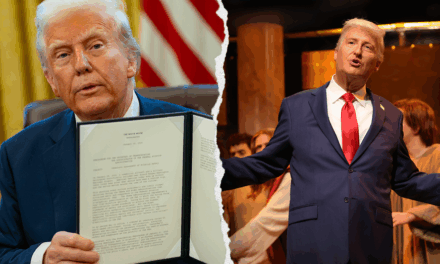In a recent media appearance, well-known radio host and television personality Charlamagne Tha God expressed his criticism regarding White House Press Secretary Karine Jean-Pierre’s newly published book. His remarks have ignited discussions about the authenticity and reliability of political figures who have been closely associated with the current administration.
Charlamagne is recognized for his outspoken views and often challenging conversations on race, politics, and culture. During an episode of his popular podcast, he took aim at Jean-Pierre, questioning her credentials and relevance to the conversation surrounding the Biden administration and its policies.
“Nobody wants to hear from someone who has, in many instances, misrepresented facts to support the administration,” he stated bluntly. Charlamagne’s comments are a reflection of a larger skepticism shared by some citizens and political observers concerning official narratives, especially those coming from high-ranking government officials.
Jean-Pierre, the first Black woman and openly LGBTQ+ person to serve as White House Press Secretary, has often found herself in the spotlight navigating tough questions and criticisms. Since her appointment, she has been tasked with announcing and defending the Biden administration’s policies on a range of issues from immigration to economic responses during the ongoing pandemic.
Charlamagne’s remarks touched upon a sensitive topic that has been part of political discourse—trust. With a growing divide between the electorate and those in political power, many individuals are increasingly questioning the truthfulness of the narratives spread by politicians and their representatives. In a media landscape rife with misinformation, the integrity of sources has never been more critical.
The skepticism raised by Charlamagne highlights a broader concern about the role of communication officials in shaping public perception. As the voice of the administration, press secretaries hold substantial responsibility and face intense scrutiny regarding their statements. Critics argue that a lack of transparency and accountability can foster distrust among the public.
Jean-Pierre’s book, which aims to detail her experiences and provide insight into her role within the administration, got tangled into this web of controversy. Critics like Charlamagne argue that to write about one’s time at the helm of communication in a politically charged environment requires a level of authenticity that they feel Jean-Pierre does not embody.
In her defense, supporters argue that despite political pressures, Jean-Pierre brings an important perspective to her role. Her experiences as a woman of color navigating the upper echelons of power provide valuable context for her insights. Many believe that her voice matters, particularly in an era where representation is essential in politics and media.
Despite his criticisms, Charlamagne’s viewpoint is part of a lively and ongoing conversation about the accountability of public officials. It is essential to have such dialogue as important for a functioning democracy. People often question the narratives put forth by politicians, driven by personal beliefs and the influence of social media and public discourse.
Charlamagne’s comments have sparked discussions across various platforms, with some siding with him while others defend Jean-Pierre’s contributions and the importance of her perspectives. This dispute highlights the ongoing polarization in American political conversations, where various factions often contradict one another based on differing perceptions of credibility and truth.
Political analysts note that public perception of the administration’s credibility may have broader implications, particularly as the Biden administration approaches pivotal moments such as upcoming elections. The interplay between fact and representation will play a crucial role in shaping future discourse around political narratives and their messengers.
In reflecting on his comments, Charlamagne emphasized the need for truthful representation in politics—a sentiment echoed by many citizens feeling disillusioned by unfulfilled promises and misleading statements. He remarked that officials must be held to a standard of honesty, especially when they are charged with communicating vital information to the public on significant issues like public health, economy, and national security.
This stance has added momentum to discussions surrounding media literacy and the demand for accountability among political leaders. Individuals are becoming more discerning consumers of news, seeking out diverse perspectives on political events and engaging in more analytical thinking about the information they receive regarding government operations.
Ultimately, Charlamagne’s comments serve as a wake-up call for the Biden administration as it navigates its complex relationship with the public. Whether or not one agrees with his viewpoint, it underscores the critical nature of clear, honest, and transparent communication in fostering trust between the government and the citizens it serves.
Analysis of Jean-Pierre’s book and the administration’s communication strategies may also prompt a reevaluation of how press secretaries and other spokespeople can work to rebuild credibility with the public. Questions surrounding bias, media influence, and transparency are vital to resolving mistrust in political communications.
As the political climate continues to evolve, the implications of Charlamagne’s critique keep the conversation lively and relevant. The relationship between public officials and the narrative they provide will remain a crucial aspect of democratic engagement, influencing not only current policies but also shaping the landscape for future generations. Whether in support or opposition, engagement in these discussions is essential as citizens navigate the complexities of political discourse in a rapidly changing world.
In conclusion, as Charlamagne Tha God articulates skepticism towards Karine Jean-Pierre’s book and her credibility, it reflects a broader discontent with political communication. The challenge remains for government officials to address this discontent through transparent and honest dialogue with the public. The real issue may not just be individual statements or books but the systematic need for political communication professionals to foster a more trustworthy relationship with the electorate in a complicated and dynamic media environment.
































